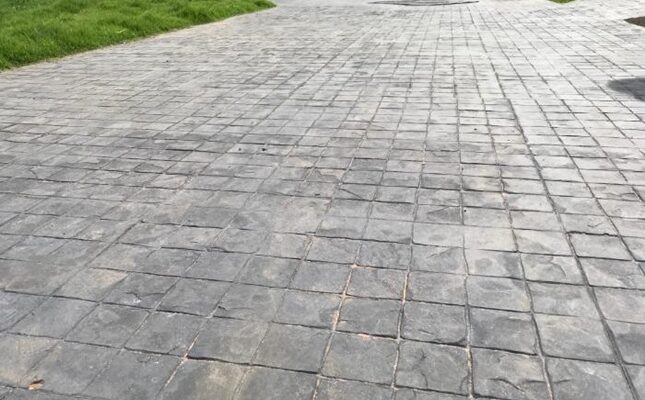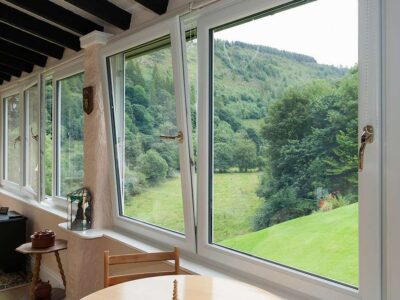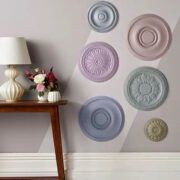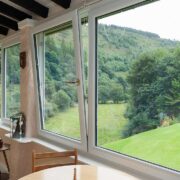
A stamped concrete driveway is an excellent choice for adding affordable style to your property. Stamped and stained concrete mimics the look of high-end stone, brick, and pavers, but for a fraction of the cost! In turn, you can enjoy a stunning, upscale entryway without breaking the bank.
However, some homeowners might not understand what is meant by a stamped concrete driveway. Some might assume that stamped and stained concrete looks just like regular cement! Consequently, they miss out on a great chance to create a beautiful outdoor space. To ensure your property looks its best even on a tight budget, check out some added details about stamped concrete surfaces.
What Is a Stamped Concrete Driveway?
Stamped concrete surfaces start with a standard concrete pour and installation. Next, a contractor uses a specialty mold, stamping it over that concrete’s surface. Lastly, the contractor adds tints, dyes, stains, and other coloring.
In turn, the surface of stamped and stained concrete looks and feels like flagstone, brick, pavers, and other such materials. Those stamps or molds create the shape of bricks and individual stone as well as surface textures. Also, those tints and stains offer the same coloring as your chosen stamped material.
In the end, you’ll have an outdoor surface that looks and feels like individual stone or bricks. However, poured concrete is more affordable and durable than many other outdoor materials! Also, concrete is easy to maintain over the years.
What Is the Difference Between Regular Concrete and Stamped Concrete?
You might now have some idea of the difference between regular concrete and stamped concrete. Regular concrete is smooth, and a contractor installs it in large sections. While you can paint regular concrete, it will still look just like cement!
On the other hand, you might not be able to tell the difference between a stamped concrete driveway and genuine stone or brick. Stamped concrete looks as if someone installed individual brick or stone pieces, with a surface texture to match! Additionally, those specialty stains look as varied as stone pieces, for an upscale look that’s nothing like plain concrete.
Are Stamped Concrete Driveways Good?
Remember that stamped concrete driveways start with a standard concrete installation. Also, your contractor can adjust concrete depth according to your needs. For instance, you might need thicker concrete to withstand the weight of a trailer or boat. Additionally, that concrete installer ensures your property’s soil stays compacted and offers a good base for the concrete installation.
Furthermore, a stamped concrete installer will ensure there are plenty of expansion joints in your installation. These are small trenches between concrete sections that allow it to expand as it absorbs water. Stamping molds allow for added expansion, helping to keep concrete in good condition.
Above all, stamped concrete offers a stunning, upscale look that can take any property “from drab to fab” in an instant! Since your driveway is one of the first things you and visitors see, a stamped entryway ensures a welcoming look. Staining also allows you more control over the driveway’s color and tone, so you can coordinate it with your home’s paint color and other exterior details.
Can You Pressure Wash a Stamped Concrete Driveway?
High-pressure washing is not recommended for many outdoor surfaces, including stamped and stained cement driveways. Using too much pressure can loosen aggregate in concrete and damage its surface. Also, high-pressure washing often loosens nearby gravel and results in lots of messy splattering!
On the other hand, soft wash power washing is an excellent choice for stamped and stained concrete. Soft wash systems use specialty cleansers that dissolve dirt, sand, silt, and other debris. Rinsing with a low pressure then removes that dirt and grime without damaging concrete surfaces.
Additionally, note that low-pressure or soft wash cleaning means little to no splashing and splattering. In turn, a soft wash power washing contractor won’t damage your lawn or landscaping features while cleaning.
The Most Durable Driveway Material
Concrete is durable and easy to clean, and can be poured into a variety of shapes and designs. It’s also suitable for just about any climate. Also, stamping allows you to create an upscale look that works well with modern homes, traditional architecture, and everything else! If you’re still considering another driveway material, note how they compare to durable concrete:
- Gravel is very budget-friendly and easy for a homeowner to install themselves. Also, crunchy gravel can alert you to visitors, unwanted or otherwise, on your property! However, even with proper compacting, gravel often comes loose over time and risks property damage. Weeds also tend to grow through gravel pieces.
- Genuine pavers provide a stunning appearance and natural aesthetic to your property. However, some pavers are brittle and might crack under the weight of a heavy vehicle. Individual pavers can also loosen over time.
- Dark asphalt helps hold heat, making it an excellent choice for snowy areas. Soft, porous asphalt also absorbs noise and vibration. The downside to asphalt is that it needs consistent sealing and offers an industrial look some homeowners might not appreciate!
- Brick is durable and easy to maintain but is one of the most expensive driveway materials to install. Also, brick might seem out of place against modern homes.
Deciding Which Type of Driveway Is Best
When choosing a driveway material, consider its long-term maintenance costs as well as its installation price. For example, gravel is cheap to install but needs constant maintenance, which can make it more expensive in the long run. Also, note a material’s expected lifespan and consider how often it might need outright replacing.
Additionally, ensure you choose a driveway material compatible with your property’s style. For instance, asphalt typically looks out of place outside a very traditional home. On the other hand, rustic gravel might be a poor fit for a modern house.
When choosing your preferred material, remember that a stamped concrete driveway can fit virtually any property style and design. Choosing a brick, paver, or stone design ensures that your new driveway will complement your house. Your concrete installer can even help you choose a stamped concrete driveway design that fits your property, needs, and budget!













